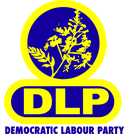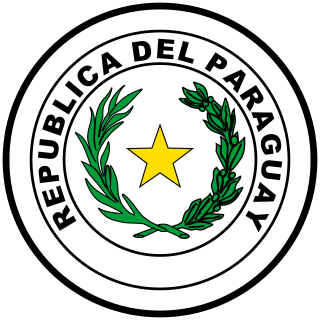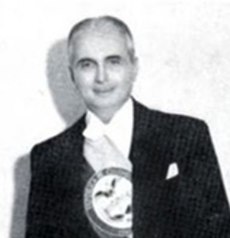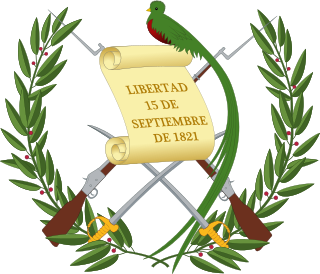| |||||||||||||||||
| |||||||||||||||||
| |||||||||||||||||
 |
|---|
| This article is part of a series on the politics and government of Colombia |
Constitution |
Legislature |
Executive |
Related topics |
Presidential elections were held in Colombia on 27 November 1949. [1] The result was a victory for Laureano Gómez of the Conservative Party, who received all but 23 of the 1.1 million valid votes cast. [2] The opposition Liberal Party withdrew from the election and called for a boycott after their candidate Darío Echandía was the victim of a failed assassination attempt. [2]

Colombia, officially the Republic of Colombia, is a sovereign state largely situated in the northwest of South America, with territories in Central America. Colombia shares a border to the northwest with Panama, to the east with Venezuela and Brazil and to the south with Ecuador and Peru. It shares its maritime limits with Costa Rica, Nicaragua, Honduras, Jamaica, Haiti, and the Dominican Republic. Colombia is a unitary, constitutional republic comprising thirty-two departments, with the capital in Bogota.
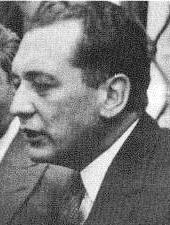
Laureano Eleuterio Gómez Castro is a Colombian politician and civil engineer who served the 18th President of Colombia from 1950 to 1953. In November 1951 poor health led him to cede presidential power to Roberto Urdaneta Arbelaez. On 13 June 1953, when he tried to resume his presidency, he was overthrown in a military coup led by Gustavo Rojas Pinilla. During the three decades prior to being elected president, Gómez was a radical leader of the Conservative Party, widely considered to be one of the most potent orators of the Congress of Colombia. He is a controversial personality, because of his sympathy for fascism and the dictatorial nature of his government.

The Colombian Conservative Party is a conservative political party in Colombia. The party was formally established in 1849 by Mariano Ospina Rodríguez and José Eusebio Caro.
It is widely speculated that Jorge Eliécer Gaitán would likely have been elected President had he not been assassinated on April 9, 1948. [3] [4] This assassination occurred immediately prior to the armed insurrection or Bogotazo. [5] [4]

Jorge Eliécer Gaitán Ayala was a politician, a leader of a populist movement in Colombia, a former Education Minister (1940) and Labor Minister (1943–1944), mayor of Bogotá (1936) and one of the most charismatic leaders of the Liberal Party. He was assassinated during his second presidential campaign in 1948, setting off the Bogotazo and leading to a violent period of political unrest in Colombian history known as La Violencia.

El Bogotazo refers to the massive riots that followed the assassination in Bogotá, Colombia of Liberal leader and presidential candidate Jorge Eliécer Gaitán on 9 April 1948 during the government of President Mariano Ospina Pérez. The 10-hour riot left much of downtown Bogotá destroyed. The aftershock of Gaitan's murder continued extending through the countryside and escalated a period of violence which had begun eighteen years before, in 1930, and was triggered by the fall of the conservative party from government and the rise of the liberals. The 1946 presidential elections brought the downfall of the liberals allowing conservative Mariano Ospina Pérez to win the presidency. The struggle for power between both again triggered a period in the history of Colombia known as La Violencia that lasted until approximately 1958, from which the civil conflict that continues to this day grew.

